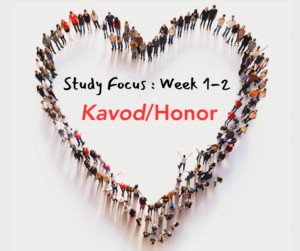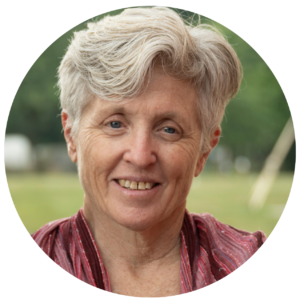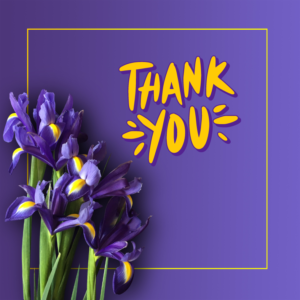
Omer Essay WEEK #2 - Nurturing Honor for Others
“Choosing To Be In A Consciousness Of Freedom”
We hope that you have already identified a self-limiting belief or something in your own life that you hope to focus on and improve during this period of time. We learn from our past, from our lineage, for it is our shared history which connects and unites us.
For hundreds of years, the Israelites journeyed through time as enslaved individuals, as a people who literally had no choice in how to navigate the challenges of their days in Egypt. Today, as a nation who has been liberated, each day offers us infinite value and potential. Each challenge we face is a nisayon (lit., test or challenge), an opportunity to ‘wrestle’ with the uncertainty and discomfort of the complexities of life, innately knowing that from this space of temporary darkness and unknowingness, the Divine light shines, waiting patiently to be revealed.
Omer counting is a sacred act of bechira (moral choice). I am choosing today, instead of passively allowing the days to slide by. The counting of these 49 days enables us to be present and to receive what the present moment has to offer us. This is a sacred invitation for us to initiate change and transformation, which leads to spiritual growth. In counting these 49 days, we are honoring time by interacting with it from a place holiness, and awe, kedusha and yirah.
Our first essay focused on Kavod/Honor for yourself and your unique gifts. This week, I would like to encourage you to take your focus beyond yourself, transitioning to an external focus point. Consider how your goal will enable you to honor others. For example, if you are continually running behind schedule, first you could think about this in terms of reigning in your own level of stress and overwhelm. And then directing this outward, when you do show up on time, this intentional effort becomes an act of honoring others. You can change both your internal and your external perspectives in one goal! Bringing the middah of Kavod into this second week of the Omer deepens your challenge by highlighting that your personal goal is about more than just yourself. Your goal is also about the ways in which you choose to relate to others and conduct yourself in your interactions with them.
Alan Morinis, in his book Everyday Holiness, reminds us of the Sages who state: “The desire for honor removes a person from the world.” However, the reverse is true concerning others, as the Sages said: “Who is honored? One who honors others.” We are being told not to seek honor for ourselves but to go out of our way to honor others. The craving for personal honor belongs to the mentality of enslavement, whilst the desire to go out of your way to honor others comes from a space of liberation and wholeness.
In our first Omer webinar, Naomi shared a soul story about a time she realized that shining her extraordinary light benefits others. By hiding our God-given talents or our unique perspective, we are falling short of fulfilling our purpose.
In Counting the Omer, we are being asked to take charge of our lives by ‘taking the reins’ and becoming aware of how each one of us is part of something so much larger. In doing so, we are each making a conscious choice to “opt in” to our place within the Jewish Peoplehood, and within the world.
In his “Song of the Soul,” Rabbi Avraham Yitzchok Kook eloquently expresses the following:
"There is a person who sings the song of the nation. This person steps forward from their private soul, which they find narrow and uncivilized. This person yearns for the heights. This person clings with a sensitive love to the entirety of the Jewish nation and sings its song. This person shares in its pains, is joyful in its hopes, speaks with exalted and pure thoughts regarding its past and its future, investigates its inner spiritual nature with love and a wise heart."
- The Spiritual Revolution of Rav Kook by Rabbi Ari Ze'ev Schwartz, p.7
Ha’Rav Kook is reminding us, that we need to step out of our individual ‘turtle shell,’ which has been blemished by the meitzarim (the narrow straits of enslavement) and tune into the song of the Jewish nation. By attentively listening to the soulful song of Jewish Peoplehood we are commencing upon sacred acts of compassion and honor, rachamim and kavod.
How would your life be different if you were able to listen to others from a place of acceptance and honor, even if you did not agree with the other person?
How could this small, yet poignant act of respect towards another human being change the ways in which you interact with your surroundings?
Rabbi Amanda Greene proclaims that “love is a covenant”, and that “our entire Jewish tradition is about covenantal love – God creating the world, so that there would be a gateway for God to enter into a relationship of love with the Jewish people.” Because we were created in the image of God/ b’tzelem Elo-him, it becomes natural to us to act this way with others – with an intentional and conscious choice to honor, to respect and to interact from a place of love – because as the Creator has taught us – Olam Chesed Yibaneh – The world is built upon love and kindness. As part of your Omer Challenge this year, reflect on how you can rebuild your world, reorganize it, in a way that it is engulfed with love and honor, compassion and kindness.
A world of honor and love is a world in which our conscious awareness is not enslaved, or entrapped. It is a world that is not mitigated by oppressive demands or external complexities. It is a world in which one’s internal knowing becomes an integral part of our Jewish collective wisdom. It is within this sacred space that one can feel a genuine connectedness to something that embodies our Jewish history and lineage. It is our ‘free will’ choice to join the Jewish Peoplehood – and by embracing our part in the Omer challenge we can actively contribute to shifting our consciousness from one of personal enslavement and narrow mindedness to a perspective of expansiveness and acceptance. By doing so, we come to honor others with the message of “you matter,” “you make a difference in this world.”
As you move through the Omer, Naomi and I invite you to mark the end of each day, before you go to sleep, by reviewing your day.
Where were you successful, productive, regarding your particular goal?
How did you experience your achievements and how did you respond to your mistakes?
Where could you have done better, showing more patience, kindness or compassion?
How has your goal brought you closer to honoring others?
Pause, and sit with the lessons of your day. And then, with the spirit of Omer, recite the blessing and count the day. Make this day count for you!
Your destination can be anywhere and anything as long as it is meaningful for you. Please email us at helaine@mussarinstitute.org and share your goal and your progress or struggles.
 - Helaine
- Helaine
Helaine Sheias, Ph.D., is the Assistant Director of Programming at TMI. She made Aliyah to Israel in her teens, served in the IDF, and settled there for more than two decades. She is a graduate of The Mussar Institute Yesod Facilitator Training Program and Manchim Advanced Facilitator Training. She facilitates many TMI courses facilitating circles of transformation and change by modeling spiritual awakening, and self-reflexive learning, or Hitlamdut. Facilitating Mussar courses brings Helaine deep joy and a continuous sense of awe and wonder.
Questions For Reflection:
1. What are the uncertainties and complexities of life that are ‘enslaving’ you? How can a consciousness of freedom help you redeem your autonomy and independence?
2. When you listen to the song of the Jewish nation, what do you hear? What do you identify with? What do you wrestle with?
3. Our lineage teaches us to interact with others from a place of honor and love – for this is the way the Divine acts with us. What is holding you back from acting in this fashion? What needs to happen so that you may free yourself from these obstacles?
4. How can ‘freeing your consciousness’ from a mentality of enslavement help you honor yourself and others? What additional Middot (soul traits) can help you achieve this goal?

Special Dedication:
We are fortunate to have a growing, beautiful and soulful Mussar community in Houston. The Houston Mussar community is honored to sponsor this week in gratitude for all we learn from the Mussar Institute.
We are all becoming.
With humility and collective love,
Heather and the Houston Mussar Community
